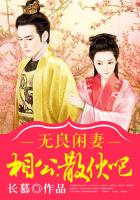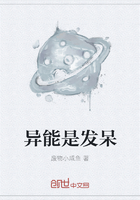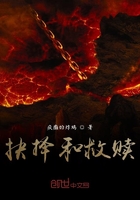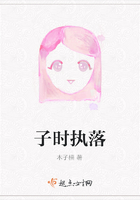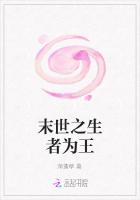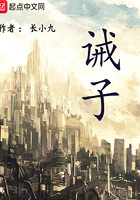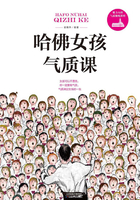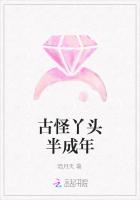The one who would actually raise the Jesuits‘ missionary spirit to a higher level was the Italian Matteo Ricci. Because of his hard work, the Catho- lic Church was able to succeed in China. Ricci and Valignaniwent to Zhaoqing together in 1583 and built a European style church outside the West gate alongside the Chongning Pagoda. The local official Wang Pan presented the church with a tablet inscribed Xian Huan Ci. Ricci hung a map of the world he had brought from Europe on the hall wall. He named the map as Shan Hai Yu Di Quan Tu (map of the world) He displayed all kinds of astronomical instruments, which attracted inspection by many elite people. Ricci and others used the opportunity to explain the Catholic catechism and five them books on the sub-ject.
In order to spread the Gospel in China, Ricci tried to live his life in a Chinese way. When he first came to China, he shaved his head and wore Buddhist monk"s robes and called himself a"monk from the West‘? Later, he changed to the Confucian style because he discovered that Confucianism was more dominant. Moreover, he knew exactly the way to make the Catholic Church known in China. He had to know the social elite and, through them, the dominant and most respected group in the country, in order to establish Christianity in China. Ricci, therefore, decided to study Confucian classics with the help of Qu Taisu, a Chinese scholar. Ricci was familiar with Si Shu Wu Jing and called him- self a Confucian from the West. China"s elites were amazed whenthey talked with Ricci because he quoted from the Chinese clas- sics often. He traveled from Nanjing to Nanchang to preach and to make friends with the government officials, prominent people and elite scholars. He studied Chinese politics in order to seek an opportunity to go to Beijing. On May 18th, 1600, he got per- mission to go Beijing with help from Qu Taisu. When he arrived in the capital, he presented his credentials to the emperor, de- scribing himself as a Western minister who admired Chinese culture and history. He did not mention his own missionary pur- pose in China. He stayed in Beijing thereafter.
Allessandro Valignani was happy with what Ricci had done, and decided to send more Jesuits to China in 1603. Matteo Ricci, Diego De Pantoja, and Gaspard Ferreira were in Beijing; Joao de Rocha, Pierre Ribeiro, Alphonsus Vagnoni and Felicien de Silva were in Nanjing; Emmanuel Diaz Sr. was in Nanchang; Nicholas Longobardi and Bartholomew Tedeschi were in Shaozhou. Those Jesuits were administering Church affairs in different capacities under Ricci"s leadership. In 1605, Ricci bought Beijing Huiyuan, which became the church of Nantang later, in the Xuanwumen area in order to be able to meet the elite and scholars. By then, about 200 had been baptized and many of these newly baptized were high-ranking government officials.
In May 1610, Matteo Ricci died of illness at age of 59.
The success of the Jesuit mission in China was because they took the right way to adapt to Chinese culture and Chinese cus- toms, showing respect as they preached the Gospel. They did not think “that Confucianism conflicted with Catholicism”? They studied the Chinese language and culture in order to intro- duce Western culture and science to China, as well as Catholi- cism. Emperor Kangxi called this way of evangelization the Rules of Matteo Ricci. Modern researchers, both in China and abroad, who are interested in the history of the Catholic Church havedefined that way of evangelization as adaptable rule.
The missionary activities of Ricci in China were a success- ful mingling of the two cultures. This can be described as the following: first of all, he introduced Western science and a new way of thinking to China. His writings and translations covered many fields: astronomy, calendar, geography, mathematics, ge- ometry, mechanics, logic, music, ethics and methods of memo- rization. He earned fame in China Zhu Shu Duo Ge Yan, Jie Jiao Jie Ming Shi, which means he wrote books and many of his sayings became proverbs; all his friends were famous elite. Secondly, he tried to adapt Confucianism to Catholicism. In his book The True Meaning of the Lord of Heaven, the termshe explained Shangdi and Tian, which were used in Chinese classics Zhou Song as Tianzhu (God)? He explained that the term Tianzhu was the one that the Chinese classics calledShangdi. He used manyethical codes that the Chi- nese elite could accept to prove the existence of God: “The first of these argu- ments has to do withhumankind"s untutoredability, which is innate ability” "Now, men of all nations under heaven possess, each of them, a natural capacity by which, with- out any communication between them, all venerate One which is regarded as worthy of supreme honor.‘ In order not to conflict with Chinese thinking habits and traditional thoughts, Ricci did not mention much about the doctrines of the Trinity, the Cruci- fixion and the Resurrection of Jesus. As a result, some people later criticized him for introducing a senseless religion to the Cover of the book True meaning of the Lord of HeavenChinese. Yet, the fact was that many scholars accepted his teachings. Xu Guanqi, a well- known scholar, was baptized into the Church after he read Ricci"s book The True Mean- ing of the Lord of Heaven. Thirdly, Ricci introduced Chi- nese humanitarian thought, his- tory and culture, as well as the life of Catholic Missionaries in China to Europe through his let-ters and reports. One of his works Ye Su Huishi Li Ma Dou Shenfu de Ji Du Jiao Yuan Zhen Zhong Guo Shi (Jesuit Priest Matteo Ricci on the History of Christianity in China), written in Latin, became a best seller. It was translated into French, German, Ital- ian and other languages. In fact, chapters of that book were let- ters and reports the missionaries sent home. This deepened Eu- ropean academia"s understanding of China and greatly influenced Europe in the early period of Enlightenment. A country that was in good order, tremendous wealthy and with a rich culture, which was managed in a way not based on God"s Revelation, surprisedany great European thinkerssuch as Gennany"s Leibnitz. eir mindsChina became an ideal country and they used thi ntlcl their own societies and thoughts.






